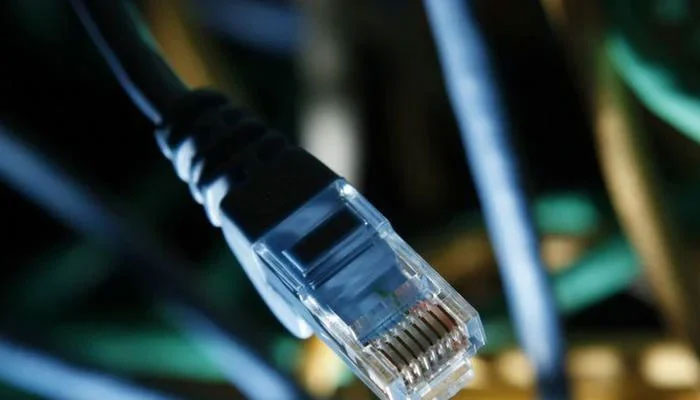Going after the internet
PTA is whitelisting virtual private networks (VPNs) after which only selected VPNs will be available in Pakistan
During a meeting of the Senate’s Standing Committee on Cabinet Secretariat on Thursday, Pakistan Telecommunication Authority (PTA) Chairman Hafeezur Rehman said that the PTA is whitelisting virtual private networks (VPNs) after which only selected VPNs will be available in Pakistan. He informed the committee that the ban on X (formerly Twitter) will be lifted whenever the government asks them to do so. Ever since the ban on X in mid-February, the usage of X in Pakistan has decreased by 70 per cent despite the availability of VPNs. Now the PTA wants to limit VPN use for the 30 per cent that are using X. Ironically, this 30 per cent also includes all government handles on X, including the president and prime minister. By first banning X soon after the February 8 polls without any explanation during the caretaker government’s era, then denying any knowledge about the ban, then later admitting it had indeed been banned, and then brazenly justifying it by invoking ‘national security’, state functionaries have made a mockery of the entire system and also exposed their ineptness. It is extremely unfortunate that in a world where the tech world is experimenting with artificial intelligence (AI), Pakistan is busy banning social media platforms and now even threatening to limit VPNs.
In June, it was reported that a national firewall was being installed on different internet service providers (ISPs) to rein in social media. Government ministers went out on a limb to defend the indefensible – installing a firewall in the 21st century, in an era where the internet and its use is considered a fundamental right. The government has justified draconian legislation as a way to counter fake news. There is no denying that there is fake news out there on social media platforms. However, regulation does not mean clamping down on social media platforms; it means countering fake news and propaganda with facts. Banning any platform is the easiest way out and also a step towards authoritarianism.
Apart from political entities and their ilk spreading fake news and propaganda, there is another reason why fake news has proliferated social media. It is because of the black hole of information that is created when mainstream media are not allowed access to issues. If mainstream media organizations were allowed to report on those issues, fake news about those issues would be countered there and then with facts. It’s like playing whack-a-mole: the more you ban, the more apps and platforms will pop up. The basic issue however will remain: fake news. To be honest, regulation isn’t just an issue in Pakistan. Global media watchdogs and rights groups have expressed their reservations regarding the UN’s Comprehensive International Convention on Cybercrime that is in the process of being finalized. Organizations like the International Press Institute, Committee to Protect Journalists (CPJ), Washington Post Press Freedom Partners and others have openly called the proposed treaty a danger for journalists. In Pakistan, laws like the Prevention of Electronic Crime Act 2016 (Peca) have only been used to muzzle information and silence dissent. Unfortunately, it seems that under the current system, more such laws and technology will be used to crackdown on social media. What a sad spectacle we are.
-
 Cuba-Canada Travel Advisory Raises Concerns As Visitor Numbers Decline
Cuba-Canada Travel Advisory Raises Concerns As Visitor Numbers Decline -
 Anthropic Buys 'Super Bowl' Ads To Slam OpenAI’s ChatGPT Ad Strategy
Anthropic Buys 'Super Bowl' Ads To Slam OpenAI’s ChatGPT Ad Strategy -
 Prevent Cancer With These Simple Lifestyle Changes
Prevent Cancer With These Simple Lifestyle Changes -
 Air Canada Flight Diverted St John's With 368 Passengers After Onboard Incident
Air Canada Flight Diverted St John's With 368 Passengers After Onboard Incident -
 Experts Reveal Keto Diet As Key To Treating Depression
Experts Reveal Keto Diet As Key To Treating Depression -
 Inter Miami Vs Barcelona SC Recap As Messi Shines With Goal And Assist
Inter Miami Vs Barcelona SC Recap As Messi Shines With Goal And Assist -
 David Beckham Pays Tribute To Estranged Son Brooklyn Amid Ongoing Family Rift
David Beckham Pays Tribute To Estranged Son Brooklyn Amid Ongoing Family Rift -
 Jailton Almeida Speaks Out After UFC Controversy And Short Notice Fight Booking
Jailton Almeida Speaks Out After UFC Controversy And Short Notice Fight Booking -
 Extreme Cold Warning Issued As Blizzard Hits Southern Ontario Including Toronto
Extreme Cold Warning Issued As Blizzard Hits Southern Ontario Including Toronto -
 Lana Del Rey Announces New Single Co-written With Husband Jeremy Dufrene
Lana Del Rey Announces New Single Co-written With Husband Jeremy Dufrene -
 Ukraine-Russia Talks Heat Up As Zelenskyy Warns Of US Pressure Before Elections
Ukraine-Russia Talks Heat Up As Zelenskyy Warns Of US Pressure Before Elections -
 Lil Nas X Spotted Buying Used Refrigerator After Backlash Over Nude Public Meltdown
Lil Nas X Spotted Buying Used Refrigerator After Backlash Over Nude Public Meltdown -
 Caleb McLaughlin Shares His Resume For This Major Role
Caleb McLaughlin Shares His Resume For This Major Role -
 King Charles Carries With ‘dignity’ As Andrew Lets Down
King Charles Carries With ‘dignity’ As Andrew Lets Down -
 Brooklyn Beckham Covers Up More Tattoos Linked To His Family Amid Rift
Brooklyn Beckham Covers Up More Tattoos Linked To His Family Amid Rift -
 Shamed Andrew Agreed To ‘go Quietly’ If King Protects Daughters
Shamed Andrew Agreed To ‘go Quietly’ If King Protects Daughters




